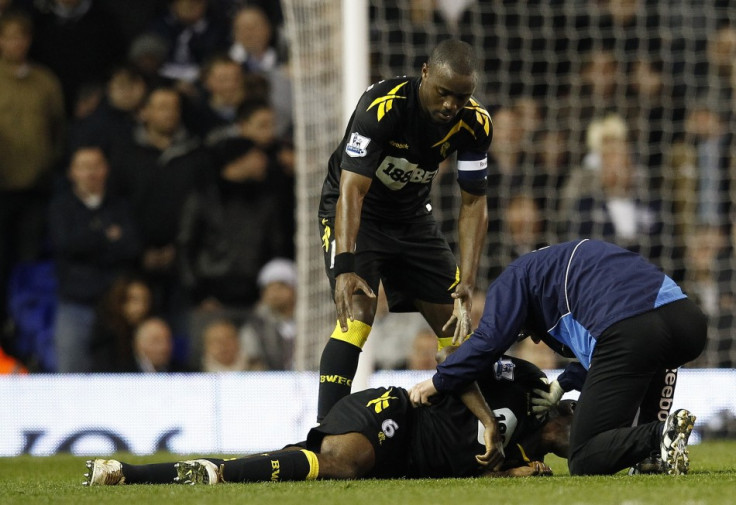Fabrice Muamba: FA Should Look to Italian Example for Benefits of Heart Checks

The sudden cardiac arrest suffered by Fabrice Muamba has led to calls for compulsory screening rules to be introduced at all levels of football in the United Kingdom.
Bolton midfielder Muamba, 23, collapsed during Saturday's FA Cup tie against Tottenham after suffering a cardiac episode believed to have been caused by arrhythmia, or irregular heart-beat. The condition, the second most prevalent cause of sudden death in young people, is most often attributed to an abnormal development of the muscle cells surrounding the heart.
It comes amid calls for all young athletes in Britain to be screened for genetic heart problems to help treat those participating with undetected heart conditions.
Dr Steven Cox, Screening Program Director at the Cardiac Risk in the Young (CRY), said: "At the moment there is a lot of work in screening done at the highest level but it's about bringing that service down to the grass-roots level because the vast majority of sudden-deaths occur not at the highest-level but in the community as people are aspiring in their careers in sport."
At least 12 young people die suddenly each week in the UK of cardiac abnormalities, many of them during or immediately after physical activity, according to the CRY.
Messages of support continue to pour in for Muamba, who remains "stable but critically ill" in the Heart Attack Centre at the London Chest Hospital. Nevertheless, experts have warned more young people remain at risk from undetected heart defects unless Britain adopts a wider screening policy for athletes.
Rotherham manager Andy Scott has called for the Football Association to adopt similar rules to Italian authorities, where all professional sportsmen and sportswomen have to undergo regular check-ups annually. This has led to a dramatic reduction in deaths from Hypertrophic Cardiomyopathy (HCM), the main cause of sudden cardiac death and other conditions.
"If Italy can introduce a system where it seems to be working and helping to prevent these things from happening, then surely with the money in the game now, at Premier League level and throughout the country, something can be done here," said Scott.
A study published in the Journal of the American Medical Association found that the incidence of sudden cardiac deaths in Italian athletes decreased by 89 percent after the screening programme was implemented - and HCM deaths from 36 percent to just 2 percent.
At present in the UK all junior footballers from the age of 16-17 undergo screenings, but British clubs do not have to screen players after that.
Although the study has been criticised by some cardiologists for its narrow section of study and specific geographical factors unique to Italy, experts have acknowledged that there are lessons to be learned from the adoption of a rigorous, comprehensive screening process for all athletes.
"There are European policies which recommend screening for anyone engaged in participatory sport, whether those are adopted in all countries is up to them. It is a recommendation at the moment, as it is at the Olympics," Dr. Cox added.
"There is a level of awareness of the importance of screening before it will be implemented as well as, if you were to look at a national screening program that will have implications on how NHS resources are allocated.
"And that needs to be discussed, as we are doing with the National Screening Committee. And we are producing the research on the prevalence of these conditions and how they can best be managed to influence policy in the UK.
"At the moment they have not agreed that the research in Italy will apply in the UK."
© Copyright IBTimes 2024. All rights reserved.





